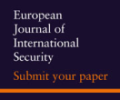Formally, the practice of diplomacy rests on the principle of sovereign equality. Many rituals, from ambassadorial titles to alphabetical seating, are meant to convey diplomatic parity in practice. And yet, as any state delegate knows, not everyone weighs the same around the multilateral table. On the contrary, the “international pecking order” (as diplomats call it) is a form of social stratification that takes shape in different ways, with top dogs getting easy access to the Secretary-General, for instance, and bottom players being mostly ignored in the play of negotiations.
Where do such diplomatic pecking orders come from? In IR theory, conventional wisdom suggests that inequality is a function of state resources. Whether it is material capabilities, “soft power” or preference distributions, country characteristics translate into variable leverage during negotiations. As correct as this argument may be, it remains deeply incomplete to the extent that it ignores entirely the role played by the diplomatic process itself. It seems as though the pecking order pre-exists the play of negotiations itself, robbing actors and their practices of any active role in the making, remaking and sometimes unmaking of international hierarchy.
Looking at the contemporary global governance of international security, this article starts from a different point of view. The collective management of organized violence has significantly multilateralized over the past couple of centuries. International organizations such as the United Nations and NATO have become key loci of security governance. This historical evolution is not without consequences. I argue that the prevalence of multilateral diplomacy today helps generate distinctive hierarchies of standing at the level of practice. Pace liberal scholars, I debunk the widespread myth that multilateralism has “a strong leveling impulse” to borrow Kahler’s words.
The basic theoretical point is a rather simple one: when diplomats pursue their instructions, they display variable amounts of competence, as defined and attributed by the community of practitioners. For instance, there are ways of “holding a bracket” (that is, deferring agreement on a given formulation in a text under negotiation) that state delegates deem more skillful than others. The everyday practice of multilateral diplomacy, then, generates a local hierarchy of standing based on the social recognition of mastery. As they strategize, negotiate, and herd colleagues, state delegates produce and reproduce a locally defined diplomatic pecking order.
Building on dozens of interviews with practitioners, the article identifies a number of practical logics that are characteristic of multilateral diplomacy and fairly generic across sites. First, competent diplomats show “esprit de corps”: the community sanctions the crude pursuit of the national interest, expecting (a semblance of) self-restraint and group solidarity instead. Second, practical mastery requires deploying local codes–peculiar ways of doing things that resonate with other practitioners. Through socialization, diplomats learn not only the rules, but also how to use the rules, for instance how to make a convincing argument to the rest of the group.
Third, given the privileged channels of communication between capitals and permanent missions, competent representatives are able to play with their instructions. This involves not only keeping their cards close to their chest, but also carving some room for maneuver by distancing themselves from instructions in front of their peers. Fourth and related, skillful ambassadors know the art of reporting back to the capital. Aware of certain internal dynamics that are unknown to the capital, they frame undergoing negotiations to the point of participating in policy formulation. They also know how to make use of their country’s diplomatic network without being sidelined in the process.
Finally, insofar as multilateral diplomacy rests on rich coalition politics, diplomats climb up the pecking order by playing brokering roles, but within subgroups and between them. In their rush to “get the numbers,” representatives put themselves in positions where some parties become more or less dependent on others. As one interviewee put it: “The only sin at the United Nations is to be isolated.” In multilateralized security governance, “being part of the parade” (to borrow Schia’s terms) often becomes an end in itself.
In sum, the politics of international security do not function in the same way under conditions of multilateralized governance as they would otherwise. Contrary to conventional wisdom in IR, the organizing principles of international hierarchies are not fixed and pre-existing but defined in context. The multilateral process generates a peculiar kind of struggle over diplomatic competence, out of which local pecking orders emerge. By implication, far from being “inherently unobservable,” as Lake puts it, international hierarchy is part and parcel of each and every practice that makes the world go round.
Vincent Pouliot




No comments yet.